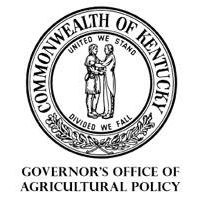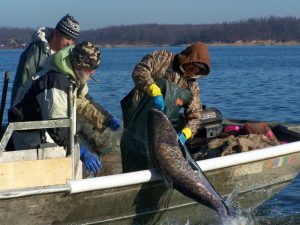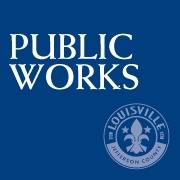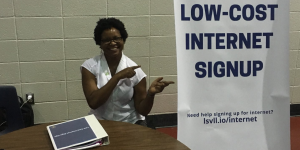
Photo: Kentucky Cabinet For Economic Development
Ring Container Technologies, a plastic container manufacturer, has opened its $23.3 million, 41-job facility, Gov. Matt Bevin announced recently.
“We are excited to welcome Ring Container Technologies to Kentucky, and we look forward to helping this company flourish at its new location,” Gov. Bevin said. “In addition to a new investment and job creation in Jefferson County, Ring will offer the added benefit of providing products to local businesses in the region. We wish the company all the very best as they begin this new venture.”
The new Ring operation will produce food-grade polyethylene terephthalate (PET) bottles for local companies in the Louisville area. The new location will eliminate the company’s need for hundreds of shipments from its facilities in the Midwest. To accommodate the project, Ring leased a more than 125,000-square-foot facility on Johnsontown Road in Louisville and expanded it to over 128,000 square feet. The company also purchased and installed energy-reducing materials and equipment, including LED lighting, a chilled water system and a variable speed compressed air system.
“We’re thrilled to open a new plant in Louisville, which is strategically located to better service key customers,” said Ben Livingston, president and CEO at Ring.
Additionally, the Louisville facility will be the first to produce the company’s latest breakthrough technology, expected to be unveiled later this year.
“This cutting-edge application was developed to support the needs of our current and prospective customers, and we are pleased to be launching it in Louisville,” said Brian Smith, Ring’s senior vice president of innovation and supply chain.
Ring is a privately held company founded in 1968 and based in Oakland, Tenn. focused on the creation of sustainable products within the consumer packaging industry. It produces plastic food packaging products, including containers for Jif peanut butter, McCormick spices and large cheeseball containers, among a wide range of other items. The company operates 18 locations in the US, Canada and the UK. Ring is a sister company of RAPAC, a producer of eco-friendly polystyrene resins and finished products and a major recycler of polystyrene in the US.
Sen. Perry Clark, of Louisville, said Ring’s presence will benefit existing local companies.
“Ring Container Technologies’ decision to open its facility in Jefferson County and provide products to local businesses will be good for businesses in our region and provide a welcome boost to our economic base,” Sen. Clark said. “We look forward to the new jobs and stand ready with a skilled workforce to meet the company’s needs.”
Rep. Joni Jenkins, of Shively, described the project as a “win-win” for the entire community.
“I’m happy to welcome Ring Container Technologies to our community and want to thank its leaders for investing so much and creating these additional jobs,” Rep. Jenkins said. “I know many of Louisville’s other companies appreciate this as well, because it will make their jobs easier. This is a win-win for everyone involved.”
To encourage the investment and job growth in the community, the Kentucky Economic Development Finance Authority (KEDFA) in September 2017 preliminarily approved the company for tax incentives up to $700,000 through the Kentucky Business Investment program. The performance-based incentive allows a company to keep a portion of its investment over the agreement term through corporate income tax credits and wage assessments by meeting job and investment targets.
In addition, Ring can receive resources from the Kentucky Skills Network. Through the Kentucky Skills Network, companies can receive no-cost recruitment and job placement services, reduced-cost customized training and job training incentives. In fiscal year 2017, the Kentucky Skills Network provided training for more than 120,000 Kentuckians and 5,700 companies from a variety of industry sectors.
For more information on Ring Container Technologies, visit www.RingContainer.com.

Photo: Kentucky Cabinet For Economic Development
U.S. Rep. Harold “Hal” Rogers (KY-05), U.S. Senate Majority Leader Mitch McConnell (R-KY) and Governor Matt Bevin today announced a $2.55 million Abandoned Mine Lands Pilot Grant to restore and enhance the Portal 31 Exhibition Mine and create a scenic overlook and parking area at Black Mountain.
The Kentucky Energy and Environment Cabinet’s Division of Abandoned Mine Lands awarded the grant to Harlan County Fiscal Court as part of the Abandoned Mine Lands (AML) Pilot Program to revitalize the coalfields in Kentucky’s Appalachian region.
The project will involve refurbishing the electronics and controls of animated figures, upgrading audiovisual systems, lighting, and control functions of the Exhibition Mine Tour, and fixing drainage in the exhibition mine tunnels and making structural repairs to tunnel roof structures. In addition, adjacent mine areas will be cleaned to accommodate a new walking tour and an additional mantrip vehicle will be purchased.
The Black Mountain portion of the project will create a new parking area with a scenic overlook, which will lead to a new walking trail that will take visitors to the overlook at the summit of Black Mountain – the highest natural point in Kentucky. A proposed 40-foot –high observation tower will provide a scenic view of Kentucky and Virginia.
The Lynch Bathhouse/administrative building adjacent to Portal 31, will be renovated to increase office space. The renovation also will provide space for a planned dulcimer factory and other crafts, a planned coffee roasting company, and enlarge an existing mushroom growing operation.
Congressman Rogers and Governor Bevin announced the grant Thursday at Benham Schoolhouse Inn, Benham, KY.
“We need to tell our story and celebrate our history in Eastern Kentucky on a larger scale, and this grant will highlight the rich heritage of coal production and the beauty of our mountains in Harlan County,” said Congressman Rogers, who has championed $80 million in federal funding for Kentucky through the AML Pilot Program since 2016, alongside U.S. Senator Mitch McConnell (R-KY).
“We need to cultivate our tourism economy on a broader spectrum by improving and marketing the qualities that make our region so unique, like Portal 31 and the highest point in Kentucky on Black Mountain. Thanks to the hard-working and resilient people of Harlan County, the future for our rural economy looks brighter every day.”
In addition to the AML Pilot Grant, the project has received $650,000 local/in-kind funds. When completed, it is expected to create 20 new permanent jobs and increase visitors to Lynch, KY and the surrounding area by 40 percent.
“When it was built more than 100 years ago, Lynch was the largest coal camp in the world, and the newly-announced resources will help restore and preserve this unique part of Kentucky’s history,” said Senate Majority Leader Mitch McConnell, a senior member of the Appropriations Committee and a key negotiator in securing the funding for this program.
“In addition to its benefits for the local tourism industry, the Portal 31 Exhibition Mine displays both the historical significance and natural beauty of Appalachian coal country. I proudly join Congressman Rogers in strong support of the AML Pilot grants to encourage economic revitalization and new jobs to Eastern Kentucky, and I look forward to the success of this project.”
“This significant AML investment will enhance tourism and economic development opportunities in Southeast Kentucky,” said Gov. Bevin. “These grant funds will enable Harlan County to showcase to visitors the region’s rich mining history as well as the scenic natural beauty of Black Mountain — the highest point within the Commonwealth.”
Energy and Environment Cabinet Secretary Charles Snavely said restoration of the mine tour is worthwhile because, not only does it draw upon Kentucky’s rich mining culture, it shows how the region is transforming itself.
“I am pleased that this Cabinet is able to be a significant part of the region’s recovery through this grant,” Secretary Snavely said.
The AML Pilot Program, funded through the U.S. Office of Surface Mining Reclamation and Enforcement (OSMRE), is a joint effort by the Kentucky Cabinet for Economic Development, the Department for Local Government, the SOAR Initiative in Eastern Kentucky, the Kentucky Tourism, Arts and Heritage Cabinet and the Energy and Environment Cabinet, Division of Abandoned Mine Lands.
 The Kentucky Agricultural Development Board approved $1,898,727 in 13 agricultural diversification and rural development projects across the Commonwealth at its monthly board meeting.
The Kentucky Agricultural Development Board approved $1,898,727 in 13 agricultural diversification and rural development projects across the Commonwealth at its monthly board meeting.
State Investments:
- Kentucky Agricultural Leadership Program
- The University of Kentucky was approved for an additional $500,000 in state funds for the Kentucky Agricultural Leadership (KALP) Program Endowment Fund. The mission of KALP is to identify, develop and motivate men and women for effective leadership in agriculture and rural communities at all levels of public service. For more information on this project, contact. Dr. Will Snell at (859) 257-7288 or wsnell@uky.edu.
- Farmers Market Structure
- The Hopkins County Extension District Board was approved for up to $215,000 in state funds and $35,000 in Hopkins County funds for the construction of a farmers market structure as part of the Hopkins County Farmers Market project in Madisonville. For more information on this project, contact Curtis Dame at (270) 821-3650 or curtis.dame@uky.edu.
- On-Farm Water Management (OWM)
- David and Mollie Appelman were approved for up to $68,502 in state funds and $1,000 in Mason County funds to implement water management practices on their farm under the OWM Research, Development and Demonstration project guidelines. Once implemented, workshops/classes will be scheduled to share information and demonstrate the practices to other farmers. For more information about this project, contact David Appelman at (606) 742-2485 or dappelma@uky.edu.
- Aquaponics Greenhouse
- LaRue County Board of Education was approved for up to $60,000 in LaRue County funds for a high school greenhouse. For more information on this project, contact Chris Thomas at (270) 358-2210 or chris.thomas@larue.kyschools.us.
County Investments:
- On-Farm Investments
- The County Agricultural Investment Program (CAIP) offers 11 investment areas that give Kentucky agricultural producers the ability to increase net farm income, add value to their products and diversify their operation. CAIP benefits and enhances agriculture across the state by stimulating markets for Kentucky agricultural products. Five CAIPs were approved by the board totaling $968,194 for Bourbon ($300,000), Bracken ($180,000), Jackson ($202,644), Rockcastle ($105,550) and Scott ($180,000) counties.
- In addition to these new approvals, an additional $18,000 was approved to enhance an existing CAIP in Adair County.
- Next Generation Farmers
- The Next Generation Beginning Farmer Program (NextGen) was developed to facilitate the growing need for a specialized program that would benefit producers engaged in an agricultural operation from three to seven years. One NextGen Program was approved for Bracken County totaling $20,000.
- Shared-use Equipment Program
- The Shared-use Equipment Program assists broad-based community organizations with the purchase of farm equipment. The equipment purchased is made available for producer use in a specific county on a leased basis. One Shared-use Equipment Program was approved totaling $9,431 for Pulaski County.
- Youth Agricultural Incentives Program
- The Youth Agricultural Incentives Program (Youth) serves as a measure to facilitate the growing need for a specialized program that benefits youth actively engaged in agriculture. An additional $3,600 was approved to enhance an existing Youth program in Adair County.
 The Kentucky Agricultural Finance Corp. (KAFC) approved $1,803,438 in agricultural loans for projects in the Commonwealth at its board meeting today.
The Kentucky Agricultural Finance Corp. (KAFC) approved $1,803,438 in agricultural loans for projects in the Commonwealth at its board meeting today.
Agricultural Infrastructure Loan Program (AILP)
- One Agricultural Infrastructure loan was approved for a recipients in Taylor ($150,000) county. KAFC participates with lenders to provide financing to producers making capital expenditures for agricultural projects through the AILP. Eligible projects include permanent farm structures with attached equipment that improves the profitability of farming operations. Producers with documented tobacco history may be eligible for up to $150,000 not to exceed 50 percent of the project.
Beginning Farmer Loan Program (BFLP)
- Eleven Beginning Farmer loans totaled $1,653,438 for recipients in Ballard ($123,750), Bourbon ($67,688), Clark ($150,000), Graves ($250,000), Green ($250,000), Henry ($117,500), Madison ($112,000), McLean ($267,500), Muhlenberg ($250,000) and Washington ($65,000) counties. BFLP is designed to assist individuals with some farming experience who desire to develop, expand or buy into a farming operation. Beginning farmers may qualify for financing to purchase livestock, equipment or agriculture facilities; to secure permanent working capital; for the purchase of farm real estate; or to invest in a partnership or LLC.
For more information on the programs offered by the KAFC, contact Sadie Middleton, Loan Programs Manager, at (502) 782-1757, sadier.middleton@ky.gov or visit the KAFC webpage at kafc.ky.gov.
 Gov. Matt Bevin today announced the award of the state’s first-ever fish house contract, in an innovative step to attack the Asian carp problem in western Kentucky and encourage job growth in the region. Bevin announced that Kentucky Fish Center, LLC of Wickliffe, Ky. has won the contract to establish the fish house, which will expand the market for Kentucky-caught Asian carp.
Gov. Matt Bevin today announced the award of the state’s first-ever fish house contract, in an innovative step to attack the Asian carp problem in western Kentucky and encourage job growth in the region. Bevin announced that Kentucky Fish Center, LLC of Wickliffe, Ky. has won the contract to establish the fish house, which will expand the market for Kentucky-caught Asian carp.
Angie Yu, operator of Two Rivers Fishery, a fish processing company also based in Wickliffe, will own and operate the Kentucky Fish Center. Asian carp caught in Kentucky will be sold by Kentucky Fish Center in daily auctions open to all interested buyers. The Kentucky Department of Fish and Wildlife Resources will oversee the auctions.
“The Tourism, Arts and Heritage Cabinet has worked tirelessly to develop a workable solution for mitigating Asian carp,” said Gov. Bevin. “Today’s announcement is a great example of government partnering with the private sector to create a commonsense, market-based solution. It will provide commercial anglers with new opportunities, while also removing this invasive species from Kentucky’s waterways.”
By buying carp caught in Kentucky waters at a guaranteed price of 19 cents per pound, and selling the fish to both domestic and international users in daily auctions, the fish house will play a key role in growing the market for Kentucky carp.
The Kentucky Department of Fish and Wildlife Resources is pledging up to $4 million in loans and incentives for the fish house and commercial fishermen. The department will pay commercial anglers an incentive of 5 cents per pound for their catch, supplementing the fish house’s guaranteed 14 cents per pound purchase price, to make fishing for carp in Kentucky’s waters economically attractive.
“Commercial anglers currently harvest two million pounds of Asian carp from Kentucky’s waters each year,” said Ron Brooks, Kentucky Fish and Wildlife’s fisheries director. “We believe this program can increase that catch to 20 million pounds across the state within the next five years.”
Asian carp first came to the United States to help control aquatic weeds and algae blooms in fish farms. By the 1980s, three species of Asian carp had escaped into the wild during floods. They have now spread throughout lengthy portions of the Mississippi, Ohio, Missouri and Illinois rivers. They have established significant populations in Kentucky and Barkley lakes.
Asian carp include bighead, silver, grass and black carp. They are prolific breeders. A single large Asian carp may produce up to a million eggs yearly. An Asian carp can consume 5 to 40 percent of its body weight each day. Bighead and silver carp feed voraciously on the same plankton that young sport fish such as crappie depend upon for their survival. Silver carp also jump from the water upon hearing the approach of a motor, creating hazards for boaters.
Commercial angling is the only practical method for limiting and reducing Asian carp numbers. Currently, only a handful of commercial anglers operate on Kentucky and Barkley lakes.
The incentives offered under the new distribution center contract will guarantee anglers a buyer and a nearby place to offload their catch. Brooks said the arrangement should lure more commercial anglers to Kentucky and Barkley lakes.
“We believe this will increase the amount of Asian carp coming out of those lakes to five million pounds per year,” Brooks said. “A sustained harvest of this amount will significantly reduce the impact of Asian carp on these nationally-recognized crappie lakes.”
The program includes a $734,000 secured loan for fixed assets to assist with the start-up of the fish house. Performance-based incentives of $570,000 to $700,000 a year will be awarded if the escalating yearly harvest goals of 5 to 20 million pounds of fish are met. The secured loan would be forgiven in 2024 if the 20 million pound goal is met that year. The program will be fully funded by boat registration fees.
Department officials estimate the effort would cost $3.5 million a year if it were run entirely by the state and would produce a harvest far less than the 20 million pound goal of the partnership announced today.
 Louisville Metro Public Works has established a policy for regulating dockless vehicles in the city that focuses on safety and equitable access.
Louisville Metro Public Works has established a policy for regulating dockless vehicles in the city that focuses on safety and equitable access.
A dockless vehicle is defined as a bicycle, electric bicycle, or electric motor-assisted scooter, defined by Chapter 74 of the Louisville Metro Code of Ordinances, which can be located and checked out without human assistance. The electric-motor assisted bikes and scooters can travel at no more than 15 miles per hour.
As part of the policy, a total of four dockless vehicle operators are permitted to operate in Louisville. Each operator will begin with a six-month probationary period, which can lead to a full-operating permit, renewed annually. During the probationary period, operators may begin with 150 vehicles and, if ridership exceeds four rides per vehicle per day, increase their fleet by 100 vehicles per month, up to 650. Ultimately, operators will be permitted 1,050 vehicles if they successfully complete the probationary period and meet performance standards, such as responsiveness to complaints and ridership.
Dockless vehicles are permitted to operate in an operational zone, defined as within the Watterson Expressway, with extensions in the south to Palatka Road (to include Iroquois Park) and west to Shawnee Park. Dockless vehicles may not be operated at Waterfront Park, which currently offers its own bike rental service. Within the operational zone, the city has established nine distribution zones to ensure an equitable distribution of the service.
Other elements of the policy:
- Each operator will provide the city with a map and list of all parking locations for their vehicles.
- Dockless vehicles shall be relocated or removed by an operator within two hours’ notice that the vehicle is parked in an incorrect manner. Monthly data reports are required to ensure all rules are being observed.
- Dockless vehicles are to be operated on streets and, where available, in bike lanes and bike paths. Vehicles should only be operated on sidewalks when leaving or accessing a parking location.
In addition to a license application fee, annual fee, bond and fee for a designation group parking area, operators will pay $1/day per vehicle. These funds will go directly to fund improvements to our city’s shared mobility infrastructure. Other fines and administrative penalties are included to ensure compliance.
To view the entire Public Works policy on dockless vehicles, which includes a map of the operational zone, please click here.
 In honor of Digital Inclusion Week, a nationwide event to share efforts in local communities to promote digital inclusion and equity, Louisville Metro Government is highlighting efforts to expand access to the internet, technology devices and digital literacy training.
In honor of Digital Inclusion Week, a nationwide event to share efforts in local communities to promote digital inclusion and equity, Louisville Metro Government is highlighting efforts to expand access to the internet, technology devices and digital literacy training.
Digital Inclusion Week is celebrated nationwide to share efforts in local communities that promote digital inclusion and equity. Metro agencies will join with community partners in hosting events throughout the city, including two low-cost internet signup opportunities, the Verizon Innovative Initiative launch, free computer trainings, a digital inclusion workshop, a door-to-door outreach, and a computer donation drive.
“Internet access and literacy are essential for citizens to reach their full potential — to apply for jobs, to do their work and school assignments, complete entire college degree programs and more,” Mayor Greg Fischer said.
“The commitment of our city to expand digital inclusion shows in the efforts of our Office for Civic Innovation, our work to bring Google Fiber and to launch it in Portland and Newburg, and our collaborations with civic hackers to use technology to help citizens.”
Grace Simrall, the city’s Chief of Civic Innovation and Technology, added: “Our goal during Digital Inclusion Week is to highlight our city’s Digital Inclusion Strategy and the resources, knowledge and expertise that address the challenges we face.”
About 29 percent of Louisville households do not have a wired internet connection at home, and about 19 percent do not have a laptop or desktop at home, according to a 2016 American Community Survey data.
Learn more about Louisville Metro’s Digital Inclusion Plan
Louisville Digital Inclusion Week events
- Monday, Oct 8 – Launch of Digital Inclusion Week on social media. Join the conversation on social media by using #DIW2018 or “#Digital4AllLou” to call attention to the importance of digital inclusion.
- Tuesday, Oct. 9 – Verizon Innovative Learning Initiative launch. Mayor Fischer joins with JCPS to announce Verizon’s $5.1 million investment in technology, which will provide free tablets and data plans to students and teachers at five JCPS middle schools. Located at Newburg Middle School, 4901 Exeter Ave., 10:30 a.m.
- Wednesday, Oct. 10 –
- Free Internet Basics training at Jeffersontown and Iroquois libraries, Microsoft Word 2 at the Main Library, andExcel (2016) Formulas & Functions 2 at the South Central Regional Library. All Louisville Free Public Library locations provide free computer and internet access, along with computer training classes, open to the public throughout the year. See full schedule.
- Low-cost internet outreach and sign-up event at the Main Library, 301 York St., 11 a.m.- 6 p.m. Learn about and receive help signing up for low-cost internet plans in our community for qualifying households. Read more for eligibility.
- Thursday, Oct. 11 –
- Digital Inclusion Workshop at Neighborhood Place Annual Day, a day of training and team-building for more than 300 social services staff attendees. Held at the Crowne Plaza, 830 Phillips Lane, 11:15 a.m. – 12:15 p.m.
- Grow with Google train the trainer event for existing partners to build capacity to offer digital trainings to clients they serve.
- Friday, Oct. 12 – Door-to-door outreach in the Russell neighborhood as part of the city’s Building Our Blocks to inform residents about low-cost broadband options.
- Saturday, Oct. 13 –
- Laptop Donation Drive at Bon Air Library, 2816 Del Rio Place, 10 a.m.- 2 p.m. to collect donations of used laptops (with power cords) which can be refurbished and distributed to residents in need.
- Low cost internet outreach and sign-up event for qualifying households at the Bon Air Library, 10 a.m.-2 p.m. Read morefor eligibility.
To learn more about Digital Inclusion Week and Louisville Metro’s Digital Inclusion Strategy, visit http://digitalinclusion.louisvilleky.gov/
 Weather
Weather Traffic
Traffic @LouisvilleDispatch
@LouisvilleDispatch @LouisvilleDisp
@LouisvilleDisp Subscribe
Subscribe